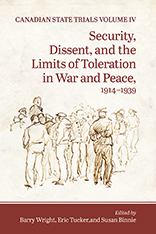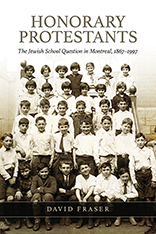Via Dan Ernst at the Legal History Blog.
CFP: Symposium on Founding Moments in Constitutionalism
Founding moments are landmark events that break ties with the ancien regime and lay the foundation for the establishment of modern states. Founding moments shape national law, influence surrounding countries, establish future power structures and legitimize certain political institutions within the country.
But what exactly is a founding moment? When do we know the “founding” process is over and when do we know it is ongoing? Is it possible to have a founding moment without a new constitution? It is not always easy to identify and define founding moments. The establishment of a new constitutional identity is almost never encompassed in one event—and may span decades in the form of anti-colonial movements, revolutions, civil wars, legitimation crises, power struggles and consolidation processes.
Founding moments sometimes endow certain elements in society—such as revolutionary parties or political leaders—with political legitimacy. A key line of inquiry therefore concerns the relationship between founding moments and “founding figures,” and the extent to which the future of a nation should be guided by the intentions of those who orchestrated these founding moments.
Founding moments moreover are not always a single moment. How does a revolution relate to and influence the promulgation of the constitution? How does the promulgation of the constitution trigger crises in the consolidation process? Is there some danger to the revolutionary fervor being entrenched in words, symbolism and structures in a country’s written constitution?
We might also consider the phenomenon of unfinished foundings, which occur when revolutionary groups overthrow a dictator but not the entire “old guard.” To what extent is an event a founding moment if it is a partial or an unfinished revolution? How do such unfinished foundations influence the identity of the country?
Alexander Herzen described revolutions and national foundings as “pregnant widows”:
The death of contemporary forms of social organization should gladden rather than oppress the soul. But what’s frightening is that the departing world leaves not an heir but a pregnant widow. Between the death of one and the birth of the other much time will go by, a long night of chaos and desolation will have to pass.
Some though not all founding moments occur at tumultuous times in a country’s history. They are bloody revolutions, fierce anti-colonial struggles and decades-long political upheavals. Countries undergoing founding moments—“pregnant widows” in Herzens words—should not be studied only as historical events but also as modern realities that influence and indeed often drive our understanding of law. From Egypt, Libya, Iraq to Nepal, countries around the world are undergoing the birth pangs of founding, constitution and reconstitution—they are waging civil wars, mounting revolutions and writing constitutions.
This conference on founding moments in constitutionalism is an opportunity to address this phenomenon and how it relates to our understanding of law.
Eligibility
Submissions are invited from scholars of all ranks, including doctoral students.
Publication
The Convenors intend to publish the papers in an edited book or in a special issue of a law journal. An invitation to participate in this Symposium will be issued to a participant on the following conditions: (1) the participant agrees to submit an original, unpublished paper ranging between 8,000 and 11,000 words consistent with the submission guidelines issued by the Symposium Convenors; (2) the participant agrees to submit a pre-Symposium draft March 30, 2016; and (3) the participant agrees to submit a full post-Symposium final draft by September 1, 2016.
Submission Instructions
Interested scholars should email biographical information and an abstract of no more than 500 words by Monday, December 21, 2015 to Nishchal Basnyat (nishchal.basnyat@yale.edu) on the understanding that the abstract will form the basis of the pre-Symposium working draft of a minimum of 3000 words to be submitted by Monday, March 30, 2016. Scholars should identify their submission with the following subject line: “Yale Law School—Abstract Submission—Founding Moments.”
Notification
Successful applicants will be notified no later than January 15, 2016.
Costs
There are no costs to participate in this Symposium. Successful applicants are responsible for securing their own funding for travel. Arrangements will be made for a special rate at a local hotel.
Questions
Please direct inquiries in connection with this Symposium to:
Richard Albert
Associate Professor, Boston College Law School
Visiting Associate Professor, Yale Law School
richard.albert@yale.edu
Menaka Guruswamy
Yale Law School
menaka@post.harvard.edu



